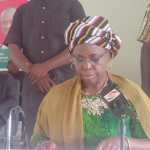
The Ghana Cedi, following a period of unprecedented gains, is expected to face seasonal pressures and a market correction, with its value likely to stabilise between GH₵13.5 and GH₵14 per U.S. dollar by the end of 2025.
This forecast was provided by renowned economist Professor Godfred Bokpin in an exclusive interview on Joy FM today, September 16, where he urged Ghanaians to maintain a sense of calm and focus on the nation’s economic fundamentals.
Prof. Bokpin explained that the Cedi’s recent volatility is a natural market phenomenon.
He stated, “We have our peak period and then we have our low period as well. In the peak period, when we experience what we call cash flow mismatch in terms of inflows and then outflows…businesses would import in anticipation of Christmas and all of that. So the demand will pick up.”
He added that a similar pattern is expected as government spending increases, which will also put pressure on the currency.
The Cedi’s performance this year has been a tale of two halves.
In the first half, it staged a significant comeback, appreciating by approximately 40.5% against the US dollar by the end of May.
READ ALSO: Cedi jumped the gun; correction normal — Prof Bokpin
This impressive run, which was its strongest in years, was driven by improved investor sentiment, a robust disinflationary trend, and a successful debt restructuring programme.
However, as Prof. Bokpin pointed out, this rapid appreciation was not sustainable because it “jumped the gun” and went far ahead of the real economic recovery.
Prof. Bokpin highlighted a concerning issue of “wide divergence” in the exchange rates offered by different segments of the market.
“If you look at the average rate in the bank and you compare that to the forex bureau and then, of course, the outer layer black market, the divergence is too wide,” he said.
He called on the Bank of Ghana to address this to curb speculative activity and create a more transparent market.
He also cautioned against the national obsession with the daily exchange rate.
“I get a bit concerned because every now and then, if you look at extreme rate discussions and you do a market survey, it’s more or less dominating our economic discussions much more than anything else, and I think that is not good enough,” he lamented.
He stressed the need to de-escalate this focus and shift attention to what matters most: the real sector of the economy.
Ghana’s economic data provides some reasons for optimism.
The country’s annual inflation rate has fallen significantly to 11.5% as of August 2025, its lowest since late 2021.
The economy has also shown resilience, with a 6.3% GDP growth in the second quarter of 2025, primarily driven by the services sector.
These positive indicators, according to Prof. Bokpin, show that the country has “exited the peak of our crisis recovery,” and that the current fluctuations are simply a part of a normal, albeit complex, market adjustment.



